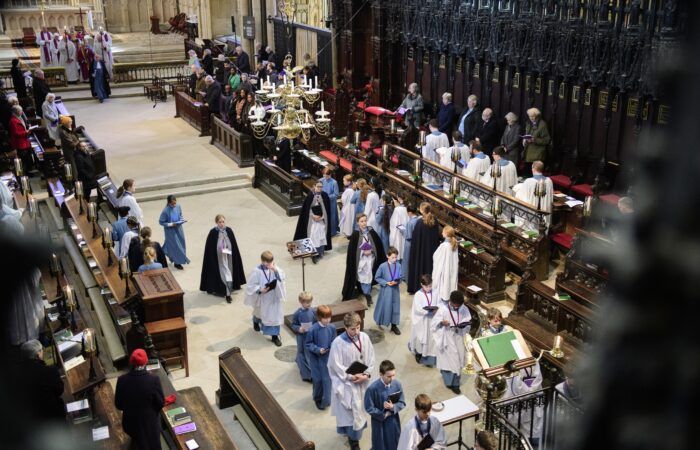The fourth Sunday of Easter (Sunday 17 April) is occasionally called Good Shepherd Sunday as the Bible readings set for the day feature images of God, of Jesus, as a shepherd. The image of the shepherd is one that resonates clearly within scripture: Jesus refers to himself as the Good Shepherd, an image borrowed from frequent references within the Old Testament, not least that most well-known of psalms, The Lord is my shepherd (psalm 23).
The image of the shepherd is one that is not just used to describe the divine it’s one that is also attributed to the kings of Israel and Judah. This makes good sense as these kings and rulers had the specific responsibility to care for God’s people and to be accountable for their welfare. They were responsible for defending them from attack, for administering justice, for taking care of the poor and needy, and for making provisions for the worship of the Lord. It goes without saying that often they failed in that task: how often we read in the Old Testament at the end of the story of a king’s life, “He did what was evil in the sight of the Lord, just as his ancestors had done”.
The responsibility of leadership is not to be taken lightly whether it is exercised amongst nations, religious groups, community organisations, clubs and groups large and small. For Christians we have the example of Christ who came amongst us as one who serves, gave us a model of holy living and said, Follow me!
John Patrick, Subdean

